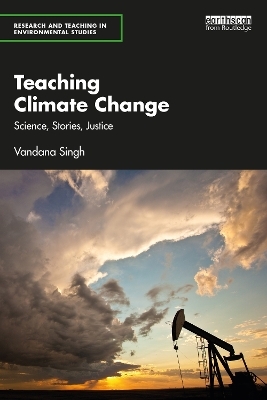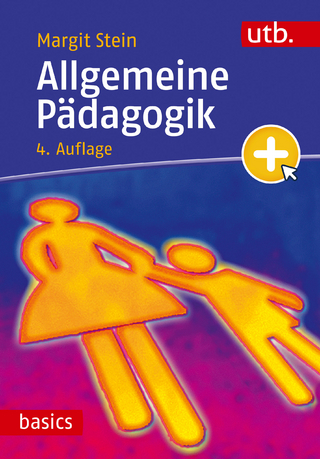
Teaching Climate Change
Routledge (Verlag)
978-1-032-27859-9 (ISBN)
The book sets out a radical vision for climate pedagogy, introducing an innovative framework in which the scientific essentials of climate change are scaffolded via three transdisciplinary meta-concepts: Balance/Imbalance, Critical Thresholds and Complex Interconnections. Author Vandana Singh grounds this theory in practice, drawing on examples from her own classroom to provide implementable ideas for educators, and to demonstrate how climate change can be taught from any disciplinary perspective in a transdisciplinary way. The book also explores the barriers to effective climate education at a macro level, focusing on issues such as climate misinformation/misconception, the exclusion of social and ethical concerns and a focus on technofixes. Singh uses this information to identify four key dimensions for an effective climate pedagogy, in which issues of justice are central: scientific-technological, the transdisciplinary, the epistemological and the psychosocial. This approach is broad and flexible enough to be adapted to different classrooms and contexts.
Bridging the social and natural sciences, this book will be an essential resource for all climate change educators practicing in both formal and informal settings, as well as for community climate activists.
Vandana Singh is a professor of Physics and Environment in the Department of Environment, Society and Sustainability at Framingham State University in Massachusetts, USA. She has been working for over a decade on a transdisciplinary, justice-centered pedagogy of climate change at the intersection of science, society and justice, with particular attention to marginalized communities in India and the United States. She was a 2021 Climate Imagination Fellow at the Center for Science and the Imagination at Arizona State University. She facilitates the Education working group for My Climate Risk, a Lighthouse Activity of the World Climate Research Programme focusing on climate science and communities.
Table of Contents
1. Ch 1 Introduction: The Climate as Teacher
2. Ch 2 What is an Effective Pedagogy of Climate Change?
3. Ch 3 Science, but Not Just Science: Whys and Wherefores of a Transdisciplinary Approach
4. Ch 4 Science and More than Science: Three Transdisciplinary Meta-Concepts
5. Ch 5 The Power of Stories: Foregrounding Justice in the (Science) Classroom
6. Ch 6 On Thin Ice: Applying the Framework to the Cryosphere
7. Ch 7 Critical and Ethical Thinking About Climate Solutions
8. Ch 8 Insights from Other Educators: Reimagining Formal Spaces
9. Ch 9 Insights from Other Educators: Climate Education Outside the Walls
10. Ch 10 Reflection-Diffraction: Endings and Beginnings
Index
| Erscheinungsdatum | 28.12.2023 |
|---|---|
| Reihe/Serie | Research and Teaching in Environmental Studies |
| Zusatzinfo | 2 Tables, black and white; 16 Line drawings, black and white; 4 Halftones, black and white; 20 Illustrations, black and white |
| Verlagsort | London |
| Sprache | englisch |
| Maße | 138 x 216 mm |
| Gewicht | 453 g |
| Themenwelt | Sozialwissenschaften ► Pädagogik ► Allgemeines / Lexika |
| Sozialwissenschaften ► Pädagogik ► Bildungstheorie | |
| Sozialwissenschaften ► Pädagogik ► Erwachsenenbildung | |
| ISBN-10 | 1-032-27859-5 / 1032278595 |
| ISBN-13 | 978-1-032-27859-9 / 9781032278599 |
| Zustand | Neuware |
| Informationen gemäß Produktsicherheitsverordnung (GPSR) | |
| Haben Sie eine Frage zum Produkt? |
aus dem Bereich


